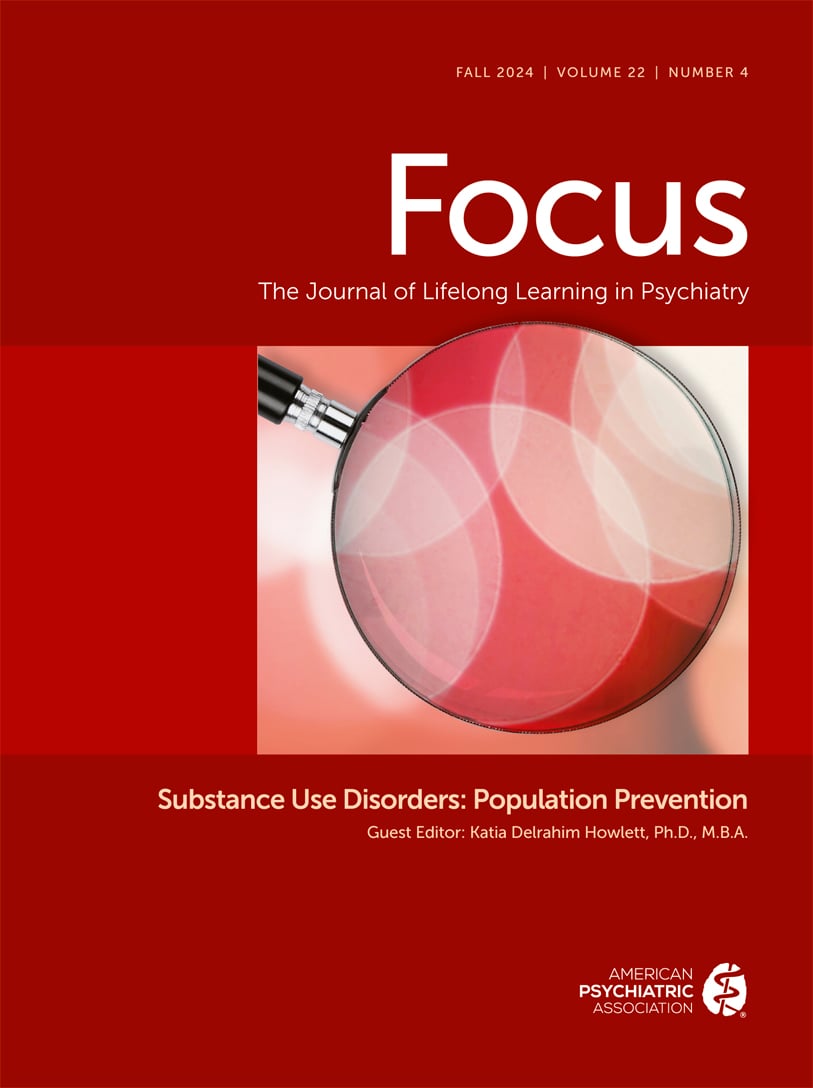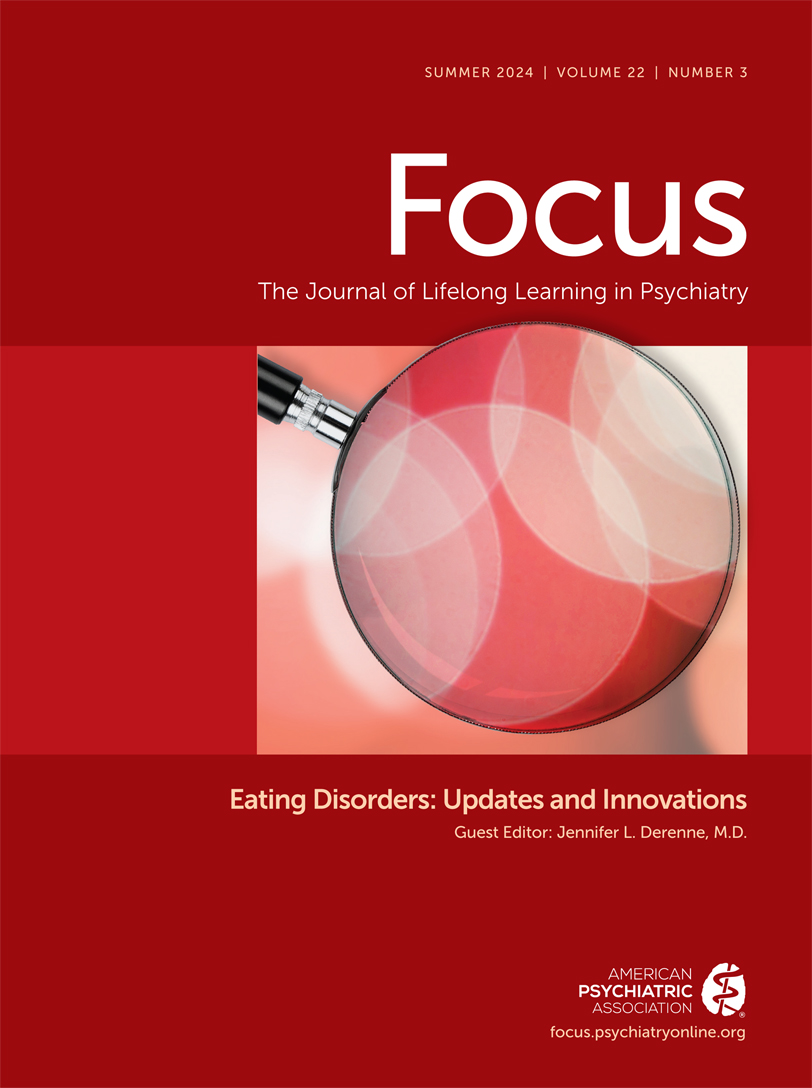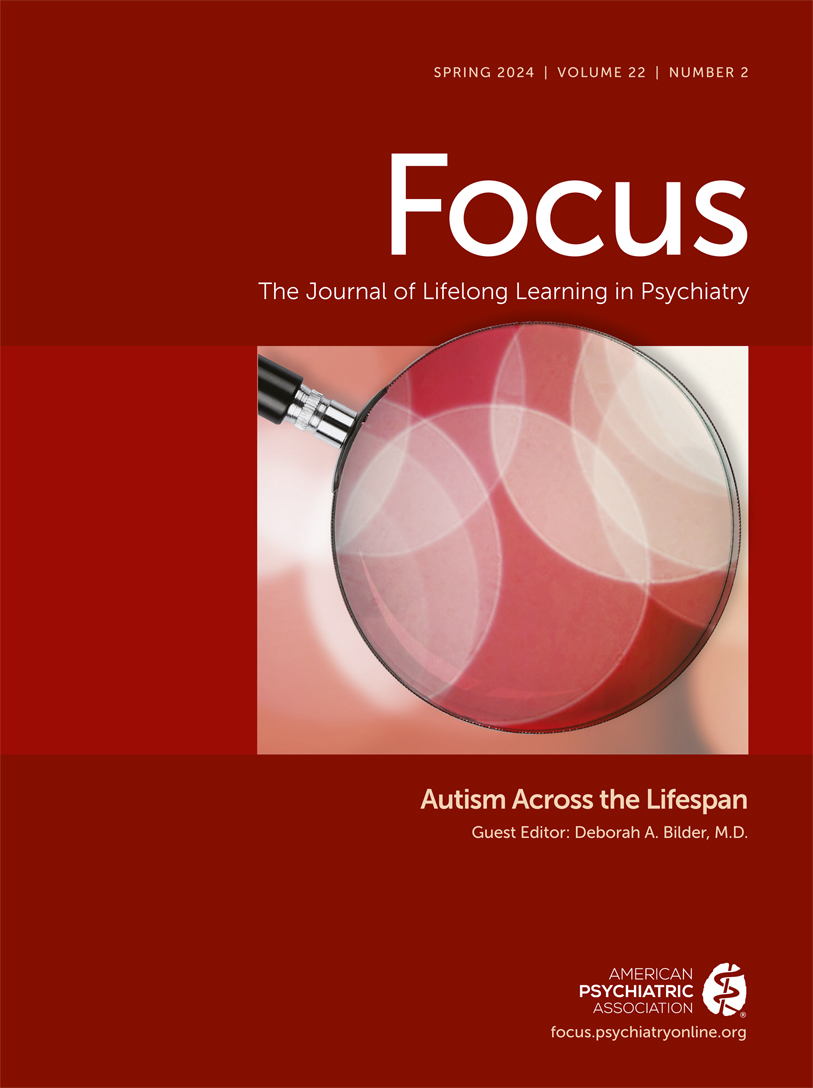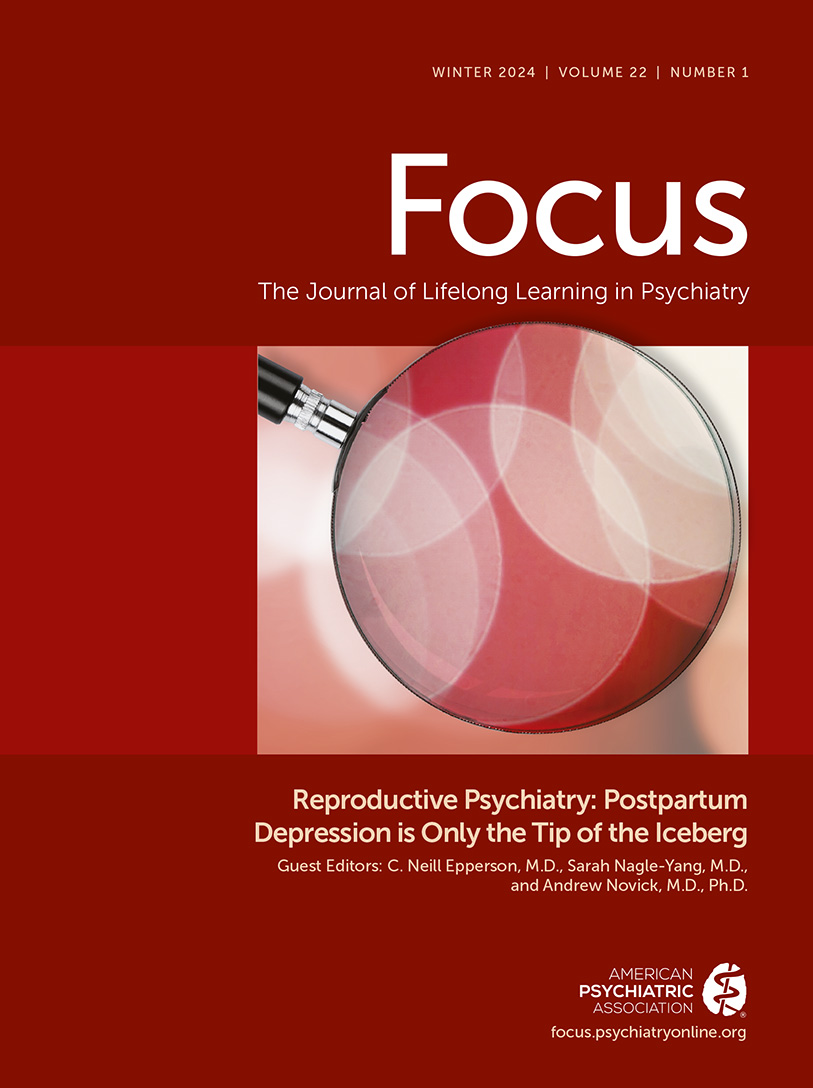Focus
- Volume 15
- Number 1
- January 2017
From the Guest Editor
Editor's Note
Reviews
Publication date: 01 January 2017
Pages4–12Cognitive function is a major determinant of an individual’s quality of life. However, the number of individuals developing a neurocognitive disorder (NCD) is increasing as the population ages: the number of individuals with dementia is doubling every 20 ...
https://doi.org/10.1176/appi.focus.20160030Publication date: 01 January 2017
Pages13–17Alzheimer’s disease is a major public health concern, affecting an estimated 40 million people worldwide. Over the past few years, several new diagnostic tests and new diagnostic nomenclatures have emerged, and more than 70 disease-modifying agents are in ...
https://doi.org/10.1176/appi.focus.20160029Publication date: 01 January 2017
Pages18–25Dementias, renamed neurocognitive disorders (NCDs) in the DSM-5, are defined by acquired decline in cognitive and functional abilities. DSM-5 now also includes mild NCD, which incorporates the previous diagnosis of mild cognitive impairment. DSM-5 ...
https://doi.org/10.1176/appi.focus.20160031Publication date: 01 January 2017
Pages26–34Cognitive deficits are thought to be a core feature in schizophrenia and have been found to be strongly associated with impairments in functioning. It is estimated that more than 70% of patients with schizophrenia have cognitive impairment. The aim of ...
https://doi.org/10.1176/appi.focus.20160032Publication date: 01 January 2017
Pages35–41This article appraises several facets of the linkage between depression and cognitive impairment, including dementia, mild cognitive impairment, and vascular dementia. Potential mechanisms for this association are examined. This review was crafted to be ...
https://doi.org/10.1176/appi.focus.20160036Publication date: 01 January 2017
Pages42–54Cognitive deficits are important and emerging clinical targets for psychiatrists caring for patients with Parkinson’s disease (PD), a neurodegenerative disorder commonly accompanied by mood and psychotic disturbances and identified by its progressive ...
https://doi.org/10.1176/appi.focus.20160043Patient Management Exercise
Ethics Commentary
Communication Commentary
Safety Commentary
Ask the Expert
Bibliography
Abstracts
Influential Publications
Publication date: 01 January 2017
Pages85–100The broad importance of dementia is undisputed, with Alzheimer’s disease justifiably getting the most attention. However, dementia with Lewy bodies and Parkinson’s disease dementia, now called Lewy body dementias, are the second most common type of ...
https://doi.org/10.1176/appi.focus.15105Publication date: 01 January 2017
Pages101–109Vascular dementia is one of the most common causes of dementia after Alzheimer’s disease, causing around 15% of cases. However, unlike Alzheimer’s disease, there are no licensed treatments for vascular dementia. Progress in the specialty has been ...
https://doi.org/10.1176/appi.focus.15104Past Issues
View Issues Archive
Vol. 22 | No. 4

Vol. 22 | No. 3

Vol. 22 | No. 2
